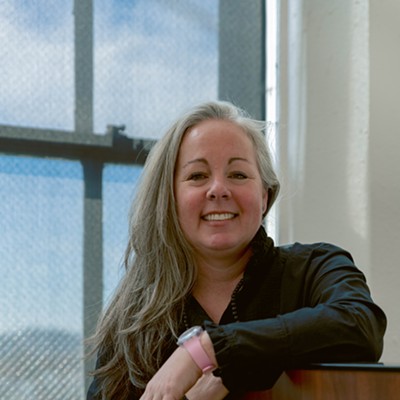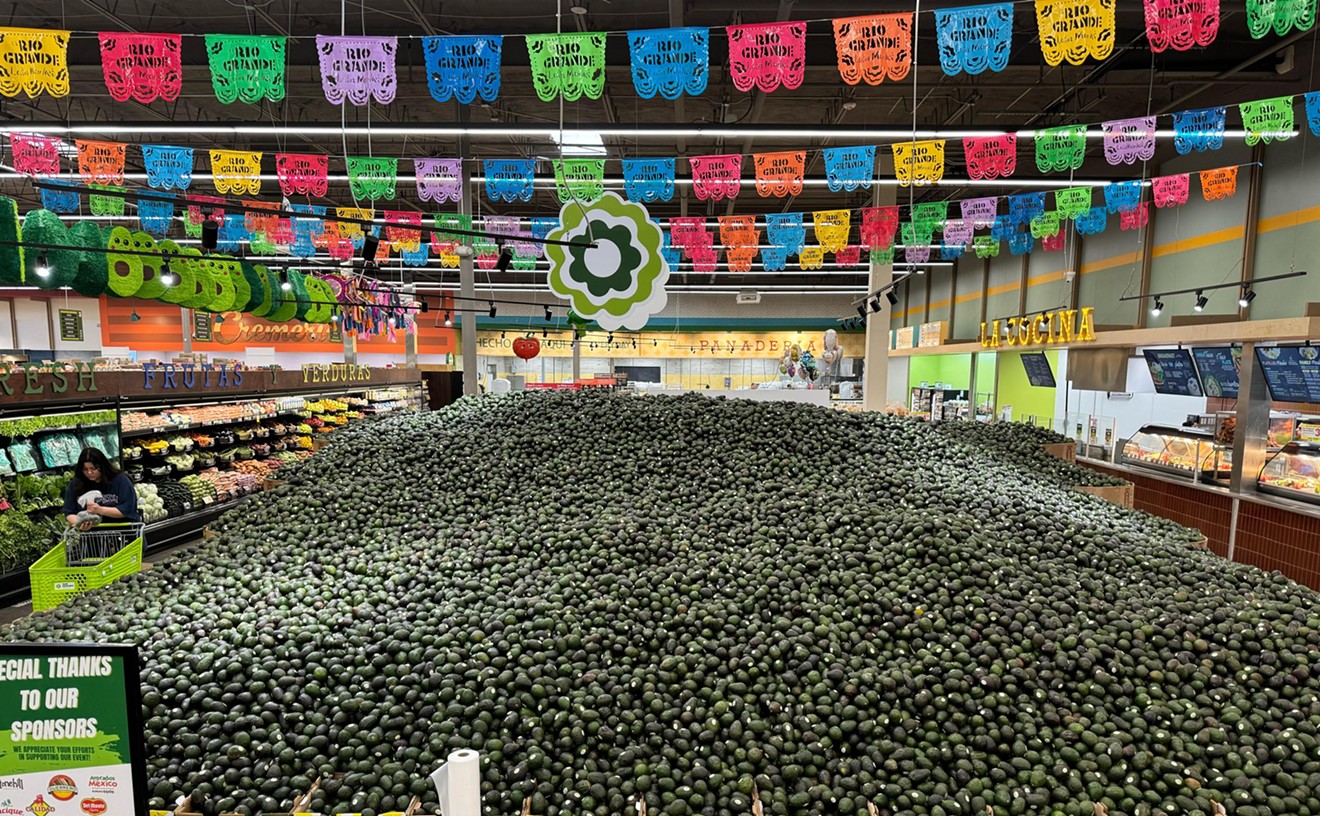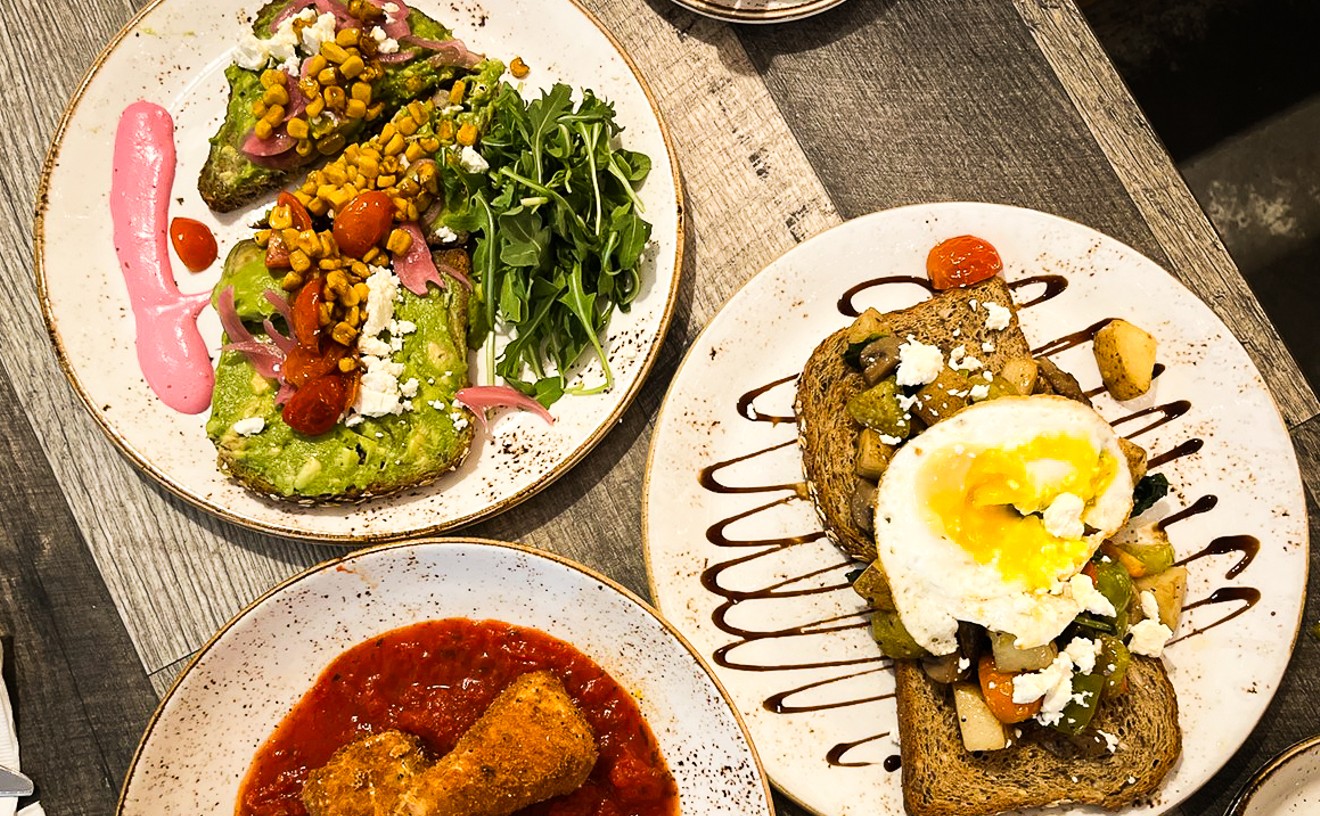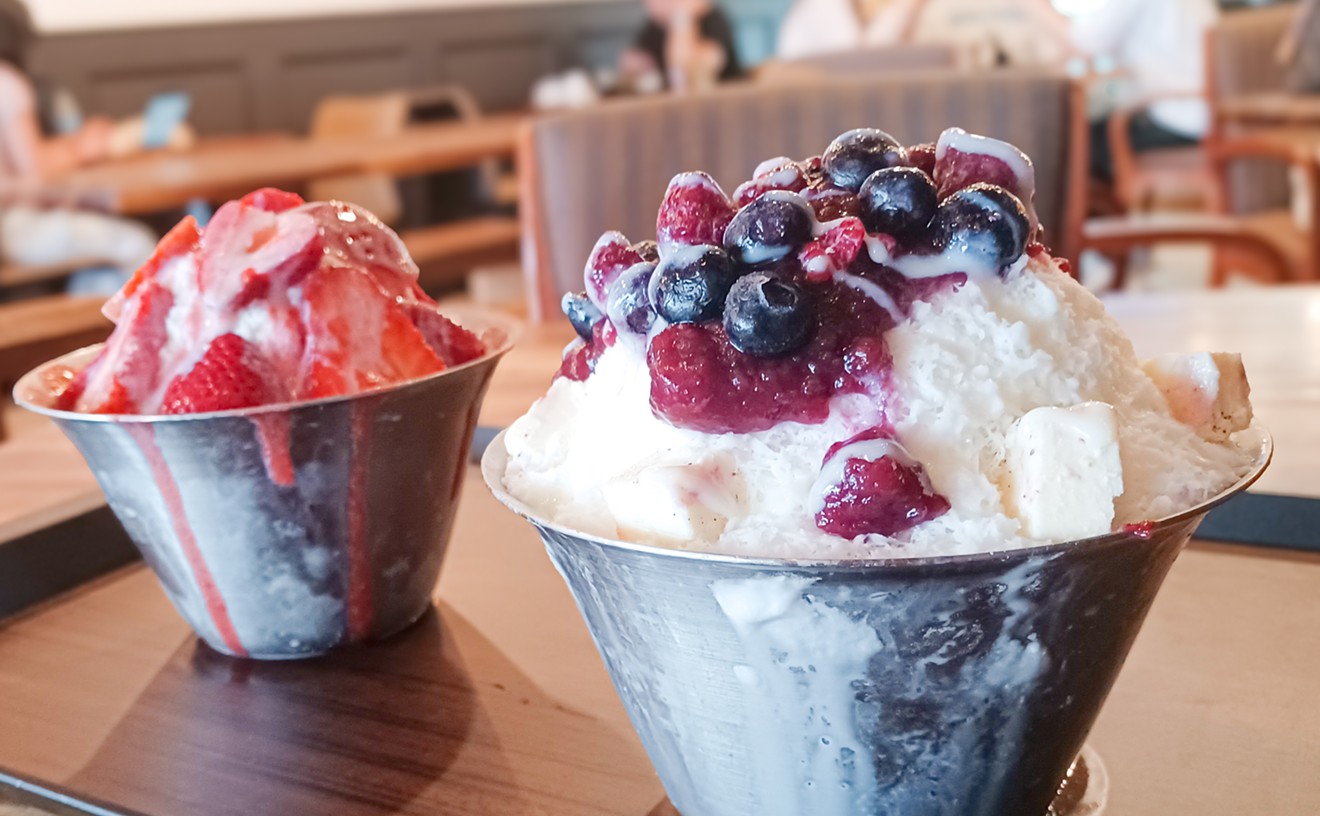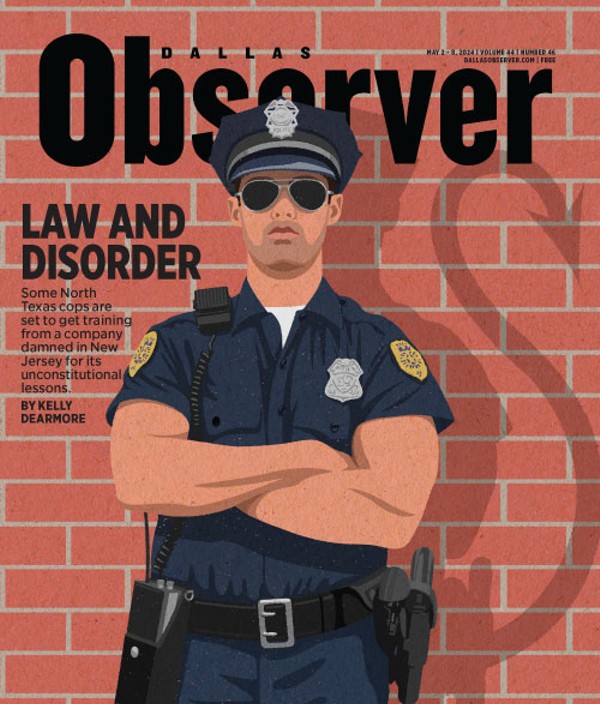Dallas native Claudine Martyn is the regional governor of Slow Food USA for Texas and Oklahoma. Per their website, "Slow Food is an idea, a way of living and a way of eating. It is part of a global, grassroots movement with thousands of members in over 150 countries, which links the pleasure of food with a commitment to community and the environment."
It's actually even more than that, though. At the local level it involves knowing the farmer who grows your food. At the community level, it means interacting with your neighbors by sharing meals together. And at the household level, it means breaking bread at the table as a family.
If "locally grown" is the new marketing catchphrase for restaurants and stores, Slow Food is the old man that's been doing it for decades wondering why it took everyone so long to catch on. The local chapter is working to expand its presence and membership in Dallas. We sat down to chat with chef Martyn to learn a little more about her and Slow Food Dallas.
When did you first get interested in cooking? When I was in college I became really interested in cooking. I got married when I was young, 18, and my husband and I went out to eat once a week. Every other meal we cooked. It took a while for me to learn to cook, but over time I became so enamored with it I decided to make a career change and I went to Le Cordon Bleu in Paris. That was about 12 years ago.
Why Paris? At the time there were only two cooking schools in the States I was interested in: either the CIA in San Francisco or Hyde Park. So, I looked into it and thought, well, if I'm going to go that far away, why not go to Paris? And it actually didn't cost any more. I thought I'd just be crazy to not go to Paris given the opportunity.
How long were you there? The cooking program there is different. I finished my degree in a year because they let students take the programs simultaneously. So, I took the cuisine and the pastry at the same time. I was there 13 months total.
Did you stage afterwards? Yes, then I went to the south of France to stage in Montpellier, and that was awesome.
When you got back to the States, what did you do? I interviewed at the Inn at Little Washington, but it was just after 9/11, so it was sort of a tough time. I wound up at Highland Park Methodist Church ... for some time, and since then I've been with Central Market -- I'm currently at the Southlake store. You're the regional governor for Slow Food USA and recently had a dinner party at your house in an effort to inform and recruit new members. How did it go and what do you want prospective members to understand? I think it went great; everyone seemed to really enjoy it.
When we have an opportunity to sit down and explain slow food, it really makes sense to people. It brings together a group of people that are concerned about health, the economy, and they're aware of what it means to buy things locally. When that all clicks, then it's really up their alley. The same goes for people that are passionate about food and wine.
What do you want people to take away from those type of events -- or any events that Slow Food sponsors? What we'd like people to take away is that without our local producers growing things sustainably, we wouldn't be able to purchase those things. We think it's absolutely important for people to have a relationship with the people that grow their food.
Are you starting to see any type of significant impact? Slow Food has been around for a while and I believe it's made an impact and we're just starting to see a result in our culture.
Is one of the goals to bring the buyers and growers together? Yes, it's one of the things we do. We tour farms and make a point of introducing people. If we can, we'll bring in a grower to speak to groups, where they're able to talk about how they grow things.
Why's that so important? Once you have that relationship you can interact with them and tell them what your needs are and it becomes a community.
One of the other things we also encourage is spending time at the table with your family. If people want to have a healthy family and to spend time with their children, slow food is really a lifestyle.
For some, family dinners are becoming a lost art. What advice do you have for busy people that are trying to live a Slow Food lifestyle? I was also a busy mom when my kids were growing up, so I understand, but it was really important to me that they eat healthy. One of the main things to do is to organize your own schedule first. It takes some planning initially, but if you can get ahead with the planning, then the schedule really all falls into place. If you can cook on Sunday for two meals to get ahead and then cook again on Tuesday, that type of organization and planning can make all the difference. Then you don't feel pressure to pick up food on the way home from work before you get the kids when everything is so rushed.
Involving kids in cooking, as soon as they're old enough, is another way to make it a family event. Also allowing them to go to the farmers market, they'll be a lot more excited about eating vegetables they helped pick out.
At some point you just have to make a conscious decision that once or twice a week you really are at home and it is just family time without interruptions. That really pays off with the kids because they know they have that time with you. How is Dallas doing with slow food as a movement? I would say every community is different, but in Dallas I think the slow food movement is more focused on the social aspect of it. There are people, like me, who are adamant about supporting slow food producers; but I would say more than 50 percent of our members are really interested in the social aspect. A lot of places in the country, it's just the reverse. People are less interested in the social aspects and more interested in advocating for farmers and ranchers. And I think that Dallas is moving in that direction, but we haven't gotten there yet.
Any favorite restaurants in terms of slow food? I really believe that Lucia is as close as we can get in Dallas. I think Bolsa is also really good and they're really interested in slow food. Recently I've heard about other places, but just haven't gotten to check them all.
Have you seen many situations where the recent slow food movement has helped farmers? I think we have quite a few situations where the movement has definitely helped. Like Burgundy Pasture Beef, they've become pretty popular now. Sloans Creek Farm near Bonham, Windy Meadows Farm, and Caprino Royale. There are some that are even smaller that are just getting started.
Some people, many actually, don't get the slow food movement and simply don't care. Buying groceries at a store or restaurant is simply a means to an end. Any tomato is a tomato that some nice farmer grew somewhere. ... Yes, we get that. A lot. There's a whole PR machine out there running for giant agribusinesses and people really believe what they're told on television, and unfortunately often it's not the truth. They don't understand that the huge agribusiness is not the same thing as a farmer. They think if something is grown in dirt, it comes from a small farmer. People only look at the surface because they're either not interested or think it doesn't affect them. Once people begin to understand that it does affect them, then they get it.
Are there any particular things you'd like the nonbelievers to understand? I don't know if it's any one particular thing. [Pause] I think one people need to understand is there's a difference between growing things to make a profit because they're supporting this giant company and that's the only motivation they have. That's very different from an individual farmer who wants to provide things that are healthy for people and who want to have a life that he can be proud of. And it's very personal to that kind of person, who's producing things for his community. Of course he's not going to want to produce things that harm people. And if it's a giant agribusiness that's not owned by an individual they may not have the best interest of their customers at heart.


